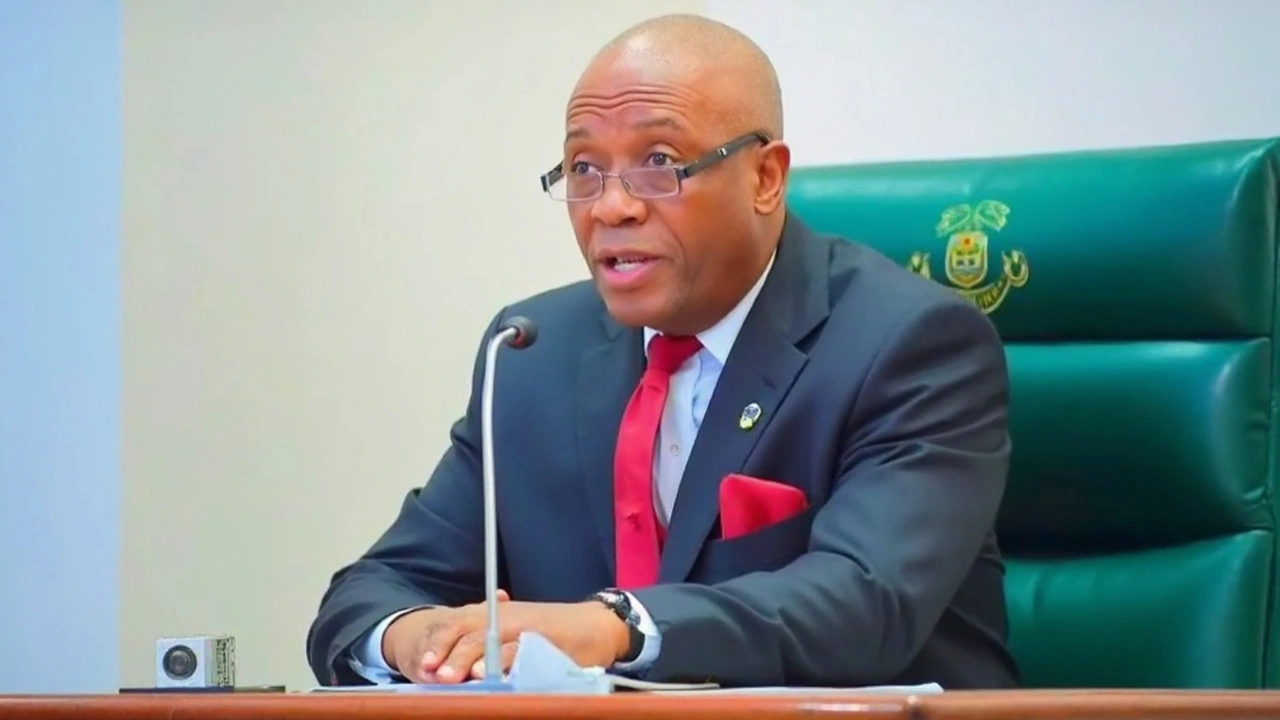
Governor Eno’s Take on Channels TV Crew’s Exit: Just Business as Usual?
The corridors of power in Akwa Ibom just got a little quieter for Channels TV—at least inside the Government House. Governor Umo Eno set the record straight after news broke that correspondent Chris Moffat and cameraman Kufre Ikpe were being shown the door from the state’s press corps. Was this political payback, or just office housekeeping gone public?
Eno insists there’s nothing dramatic at play. According to him, this so-called eviction is just a standard rotation. He points out Moffat’s decade-long run as a correspondent covering Government House—longer than most heads of departments in the state’s civil service. The governor says it’s normal procedure worldwide: journalists don’t stick to a single beat forever. The job of the Chief Press Secretary (CPS), as Eno sees it, is to keep things fresh by rotating who gets access. His message? No hard feelings, just a routine shuffle.
The timing, however, raised some eyebrows. This whole shake-up came right after a video surfaced showing Eno instructing his commissioners to either switch party allegiance to the APC with him—or step down. The footage sparked headlines and heated chats on social media. Suddenly, Channels TV’s crew, who helped broadcast that critical moment, lost their place at the heart of state government reporting. You can see why people started connecting dots.
Prominent lawyer and activist Inebehe Effiong didn’t hold back. He openly questioned why the team was shown out if the meeting was supposed to be transparent and open to media. For Effiong, the whole thing gives off an aura of clamping down on press freedom, especially at a tricky political moment. The government, though, is adamant: the meeting wasn’t meant to be secret, and the press corps rotation had been due for a while.
Inside the Playbook: Why Rotating Journalists Still Sparks Debate
Globally, swapping out longtime correspondents makes sense on paper. It prevents relationships from blurring ethical lines and gives new voices a chance to ask the tough questions. But in Nigeria, where access often means influence, these rotations can easily stir up suspicion—especially when they coincide with sensitive political moves.
The Akwa Ibom media landscape thrives on robust, sometimes tense, relationships between journalists and public officials. Eno says nothing’s changed there. The state government, he maintains, is open for business with all major outlets—including Channels TV. He even underscores that the CPS can choose who works within the press corps, so long as the station gets to send someone new. It’s not about silencing dissent, Eno says, but about fair rotation.
But for those on the outside, timing is everything. When political headlines are fresh, and the messenger gets benched, it’s easy to suspect that the message itself hit a nerve. Eno’s team believes the move stands up to scrutiny: it’s just a matter of following the press corps playbook. Critics, meanwhile, want to know if media openness survives when the reporting makes those in charge uncomfortable. That’s a tough question—one that might not find an easy answer soon.




